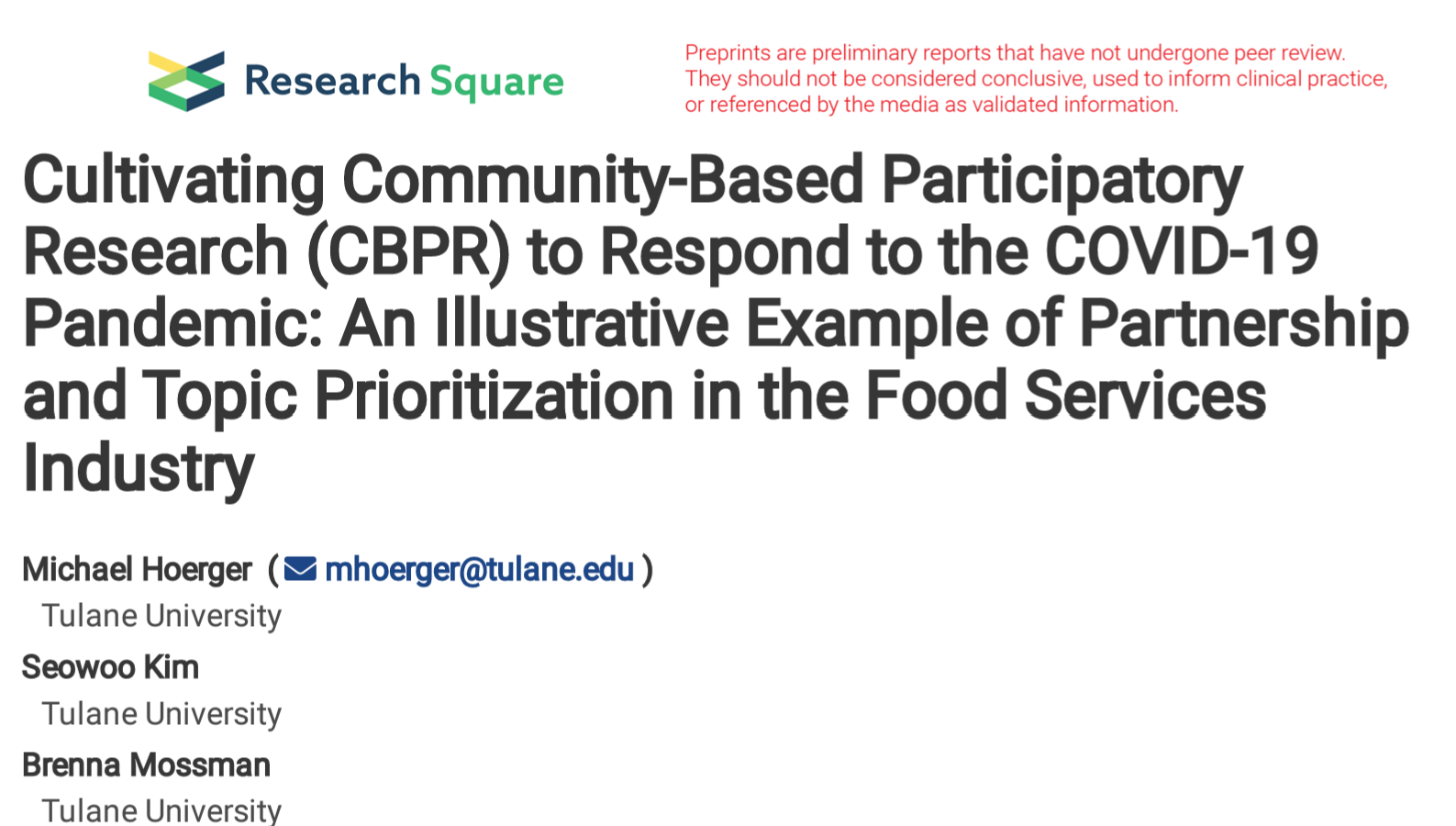Welcome to the Pandemic Mitigation Collaborative (PMC)
The mission of the Pandemic Mitigation Collaborative is to reduce the physical and emotional burden of the COVID-19 pandemic.
As New Orleans was one of the hardest-hit cities at the pandemic onset, Dr. Hoerger's Tulane University team sprang into action to reduce the burden of the pandemic in March of 2020. The Pandemic Mitigation Collaborative was born. We are a collaborative organization grounded in trust. We have led projects to reduce COVID transmission, identify and protect the most vulnerable, and understand the physical and mental toll of COVID-19. Along the way, we have become international experts in comprehensive COVID-19 mitigation, community partnership, and mutual support. Please contact us if we can be of help.
As summarized in a leading scientific publication, called Science, SARS-CoV-2 is an airborne respiratory virus. Contrary to early pandemic awareness, the virus spreads predominently through the air, rather than via surfaces. The virus can linger in the air like smoke in poorly ventilated indoor spaces. The virus spreads when one person exhales it and another person inhales it.
A multi-layered approach remains necessary to reduce the burden of COVID-19. The PMC-19 logo shows our version of the "swiss cheese" model. Each layer of mitigation is important but less than 100% effective. By using multiple layers, we can reduce the number of reinfections and their impact on individuals, families, and society. See video.
When testing was publicly funded and widely available, we had reasonable data for accurately monitoring transmission. As testing has fallen off, we have developed wastewater-derived metrics for estimated cases, the proportion of the population infectious, new Long COVID cases, excess deaths, and more.
Annual COVID transmission remains high. Thus, accurate monitoring, testing, isolation, remote activities, masking, air cleaning, boosters, and other mitigation remain important. Droplet-based precautions (handwashing, hand sanitizer, surface cleaning) are ineffective against airborne illness. Accordingly, a prudent public health response would be to improve testing, masking, and air cleaning.
Projects
Oncology guidelines and the "COVI-CAN" pilot study to provide comprehensive COVID-19 pandemic support for people with cancer
JAMA Oncology Editorial - Top 10 Tips for Hospitals
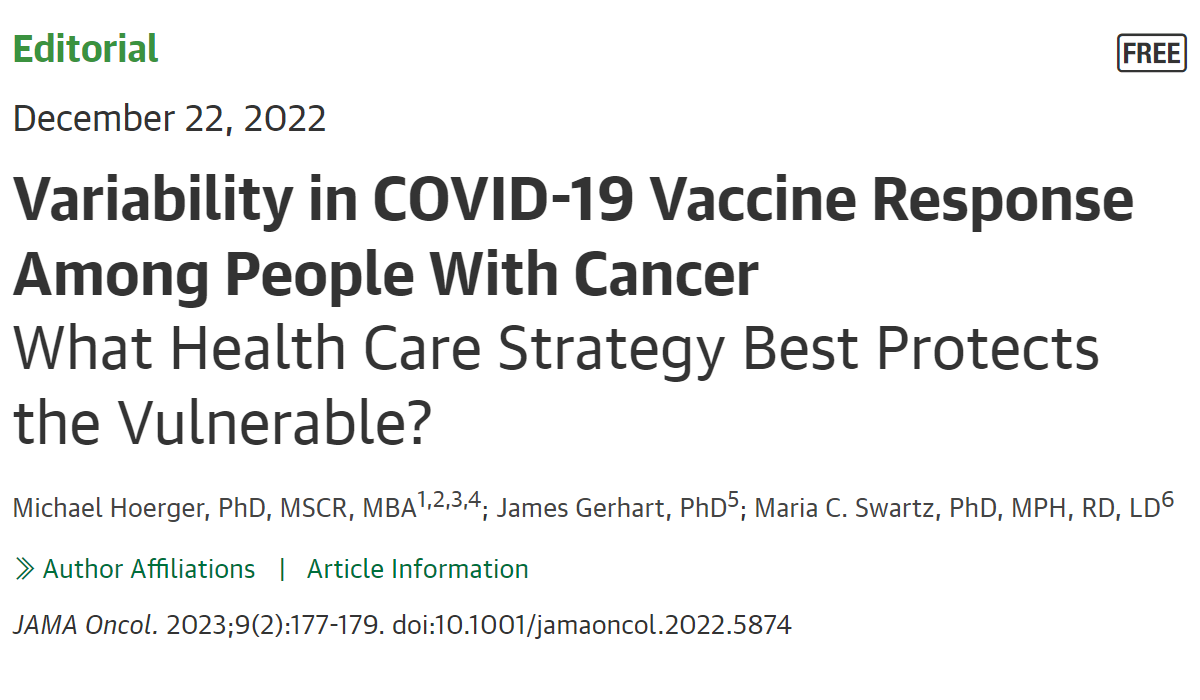
JAMA Oncology Rejoinder - Countering COVID Disinformation
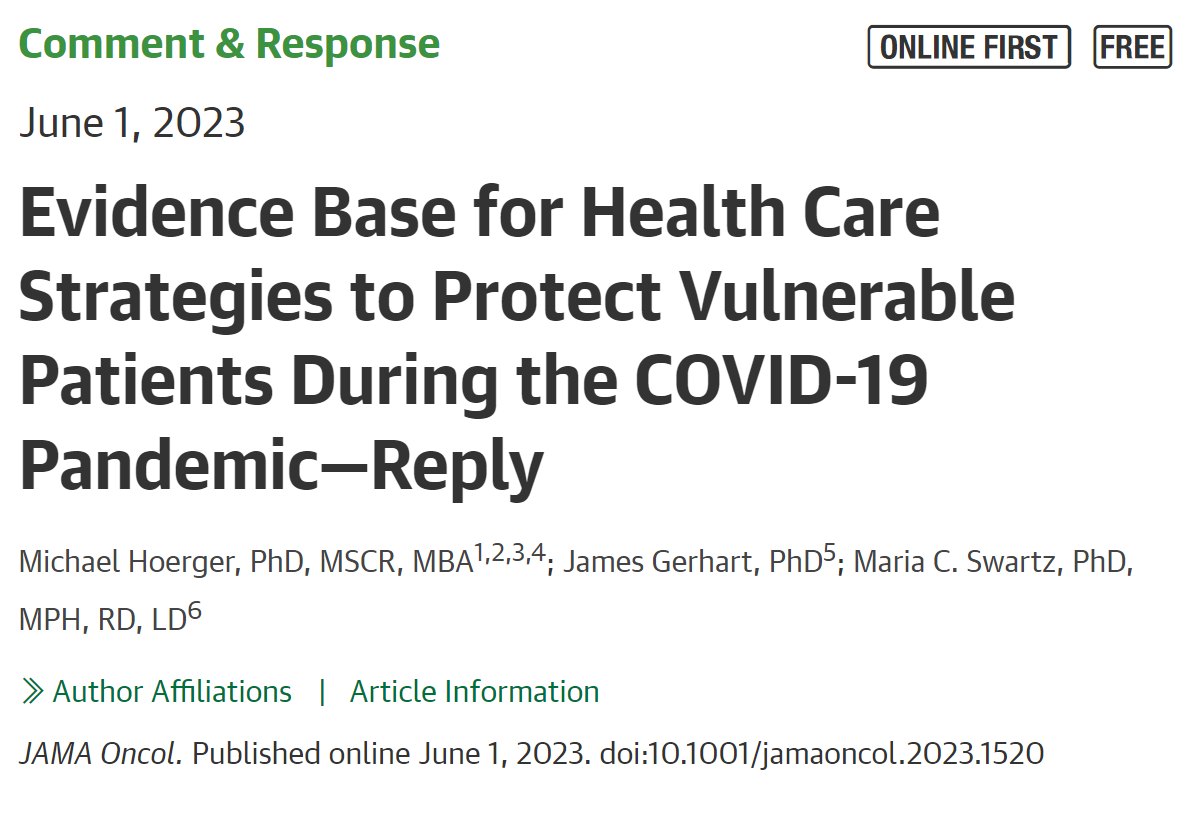
CBS - COVI-CAN Pilot Study to Reduce the Risk of COVID-19 for People with Cancer
FOX - More coverage of the COVI-CAN Pilot Study
JAMA-NO Article - Elite Cancer Centers Require Masks in 2024

Creating safer classrooms using comprehensive COVID mitigation
Teaching health science students safely with universal mitigation

Our Video on Air Cleaning with School Examples
Comprehensive Video on School Pandemic Safety (non-PMC)
Helping communities to wear high-quality, well-fitting masks
N95 Distribution Study
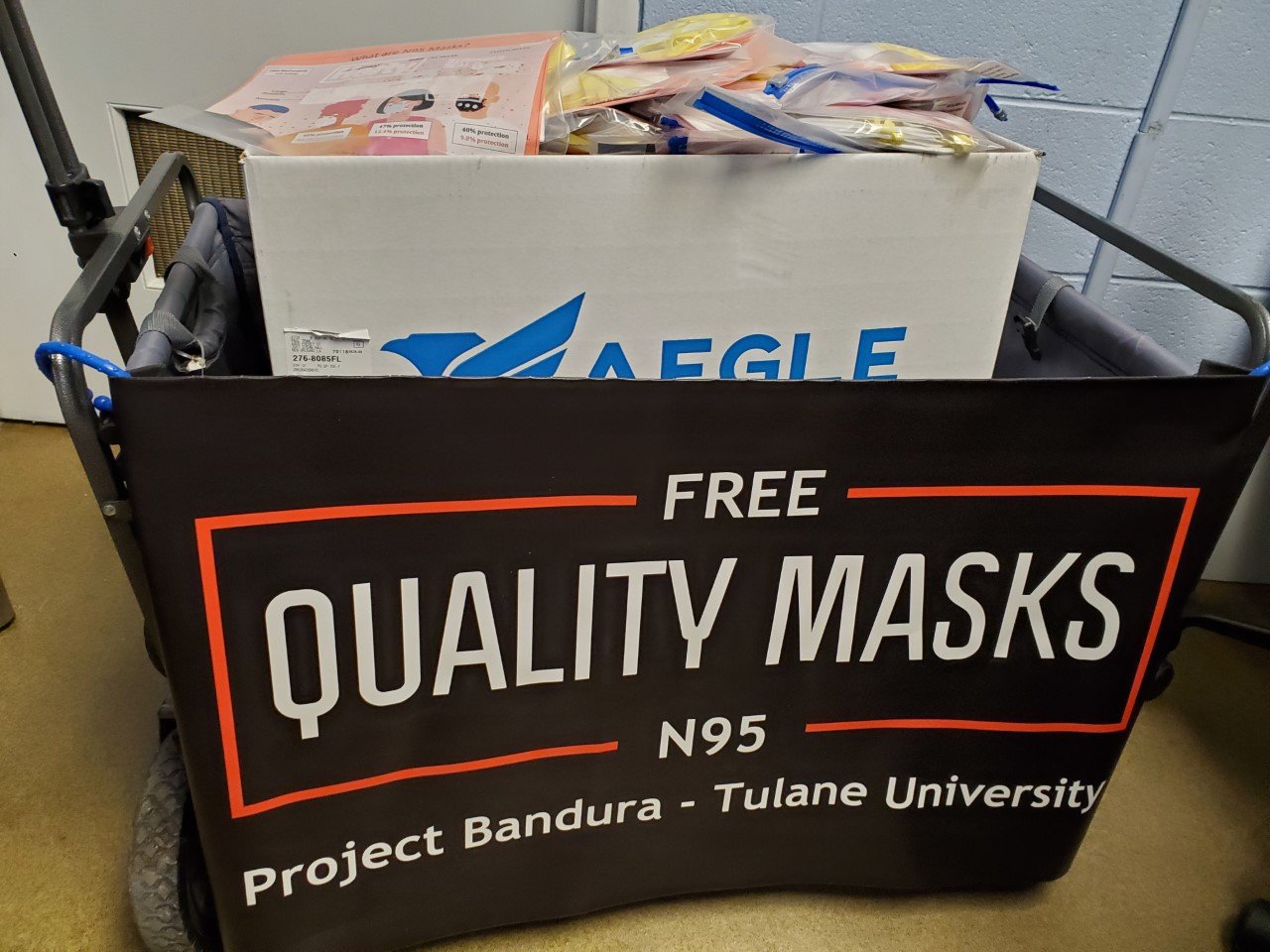
Thread on DIY Fit-testing

Video with Masking Tips
Understanding the impact of the pandemic on high-exposure food service workers
Keeping babies safer from COVID-19
HEPA Buggy Pre-Print
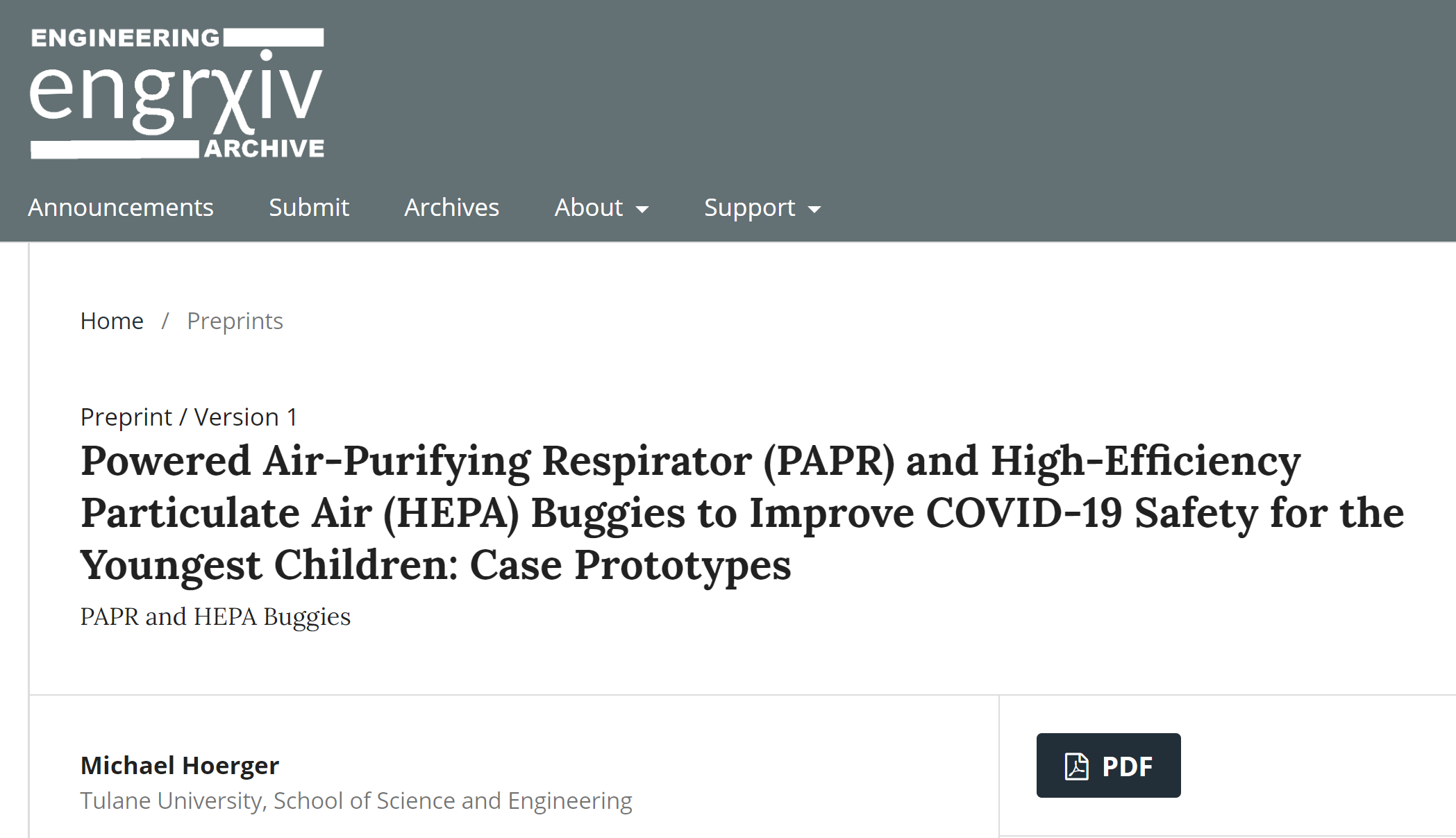
Thread on Protecting Newborns from Nosocomial COVID-19

Documenting the psychological impact of the pandemic
Google Trends in Immediate Pandemic Impact

Regional Differences in Shelter-in-Place

Modifying CDC policies to improve protections for people with a history of smoking
Increased Risk Among Tobacco Users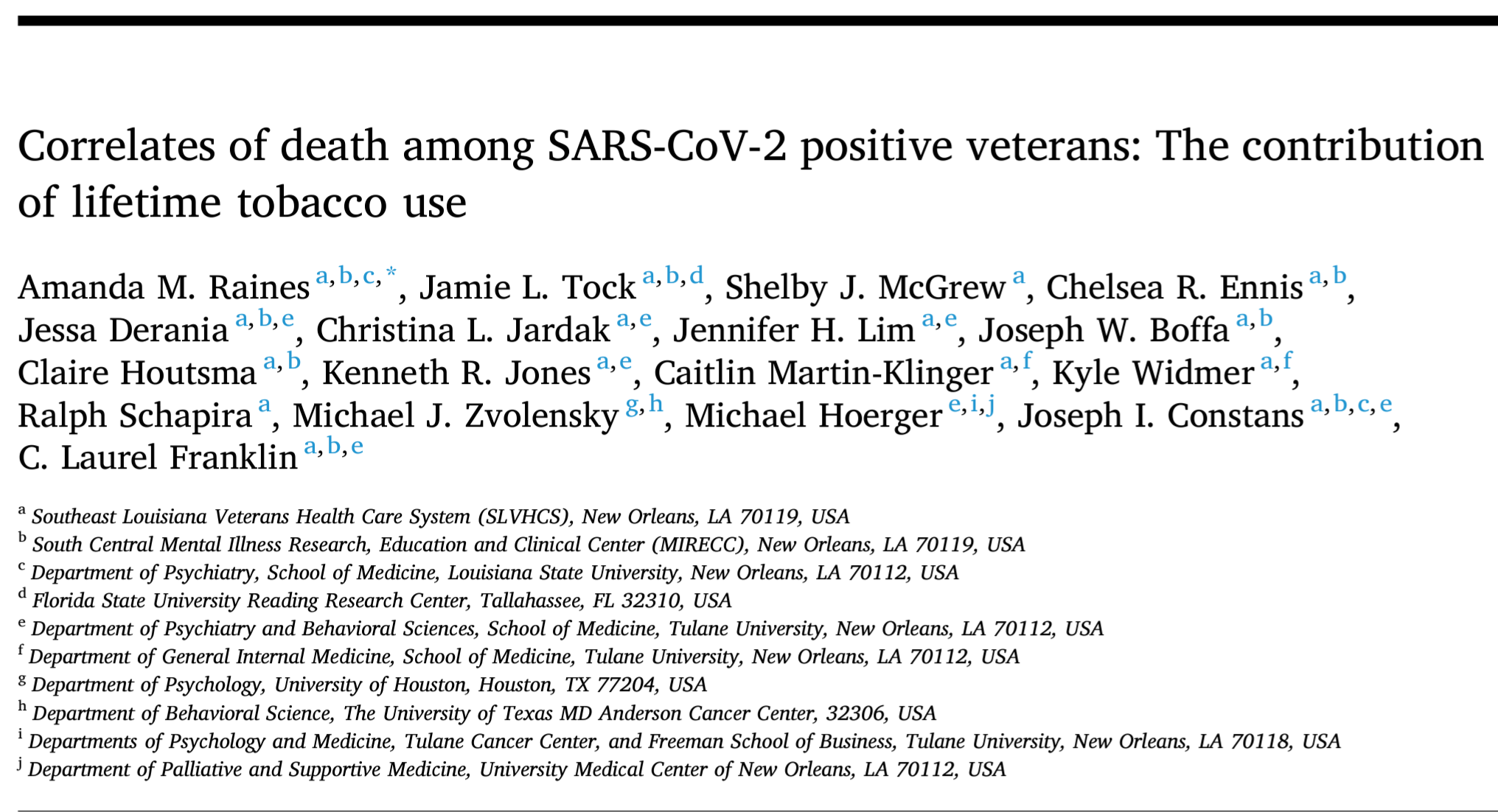
Conducting research studies with comprehensive pandemic precautions
Running the 1st American Cancer Society-sponsored Behavioral Clinical Trial in Louisiana, and with Comprehensive COVID Mitigation

[Picture pre-pandemic]
Consults
Our projects to mitigate the COVID-19 pandemic require that we read the newest scientific articles and pre-prints and consult with other leading experts on a daily basis. We are happy to lend our support if helpful for a new or ongoing pandemic project. We have also helped hundreds of specific individuals and organizations responding to pandemic crises. If you are facing a crisis, we are happy to provide informational resources and assistance within our competency or refer you to other experts who can be of more help. Please feel free to reach out by email (mhoerger@tulane.edu) or DM.
